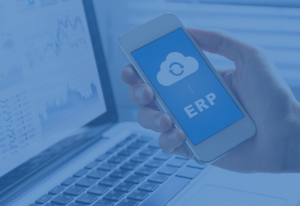
Moving an Enterprise Resource Planning (ERP) system to the cloud can be a daunting prospect for many businesses. While cloud ERP systems offer many benefits, such as scalability, cost-effectiveness, and ease of implementation, there are still some fears and concerns that businesses may have when considering a move to the cloud. Here are some of the biggest fears of moving the ERP system to the cloud and how to address them:
- Data security: One of the biggest concerns when moving an ERP system to the cloud is data security. Businesses worry that their sensitive data could be compromised or hacked if it is stored in the cloud. However, cloud service providers often have advanced security measures in place, such as encryption, firewalls, and intrusion detection systems. It is also essential to ensure that your cloud provider is compliant with relevant regulations, such as GDPR or HIPAA, and has robust data backup and disaster recovery plans.
- Reliability and uptime: Another concern is the reliability and uptime of the cloud ERP system. Businesses worry that they may experience downtime or service interruptions, which could impact their operations and productivity. However, cloud service providers often offer 24/7 monitoring and support, ensuring that any issues are addressed quickly. It is also essential to choose a reputable provider that has a proven track record of high uptime and reliability.
- Integration with other systems: Businesses may be concerned that moving their ERP system to the cloud could impact integration with other systems, such as their Customer Relationship Management (CRM) or Supply Chain Management (SCM) systems. However, cloud ERP systems often have robust integration capabilities, and many providers offer pre-built integrations with other popular systems.
- Data migration and implementation: Data migration and implementation are often the most significant concerns when moving an ERP system to the cloud. The process can be complex and time-consuming, and businesses worry that they may experience disruption to their operations during the transition. However, working with an experienced cloud provider and having a detailed implementation plan in place can help to ensure a smooth transition and minimize disruption.
In conclusion, moving an ERP system to the cloud can be a daunting prospect for businesses. However, by addressing common concerns such as data security, reliability, integration, and implementation, businesses can successfully transition to a cloud ERP system and reap the benefits of improved scalability, cost-effectiveness, and ease of implementation.




